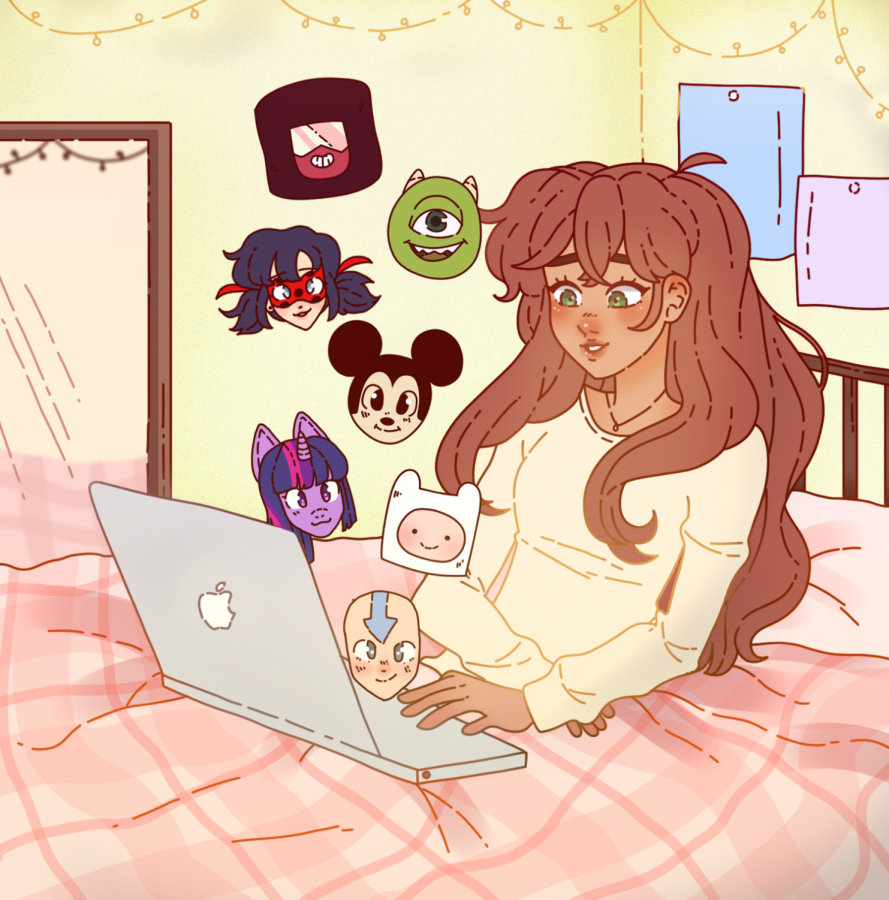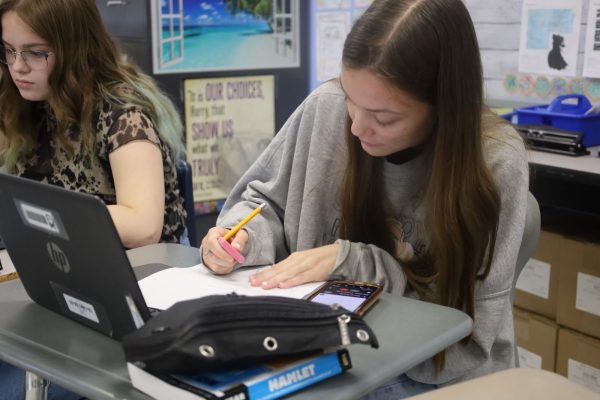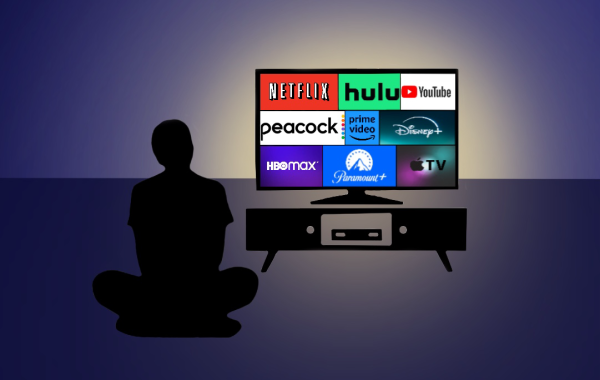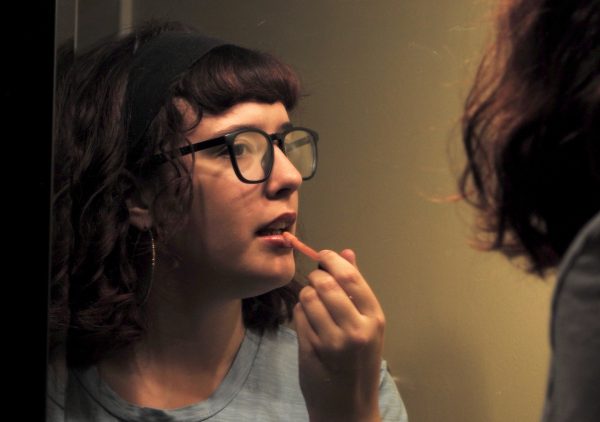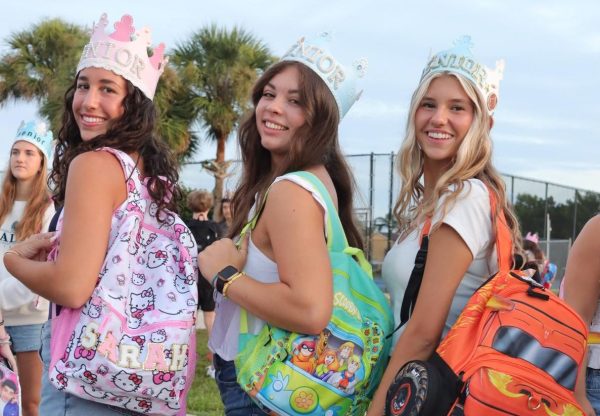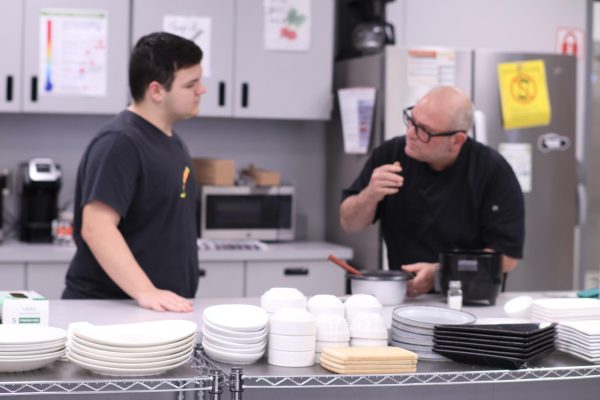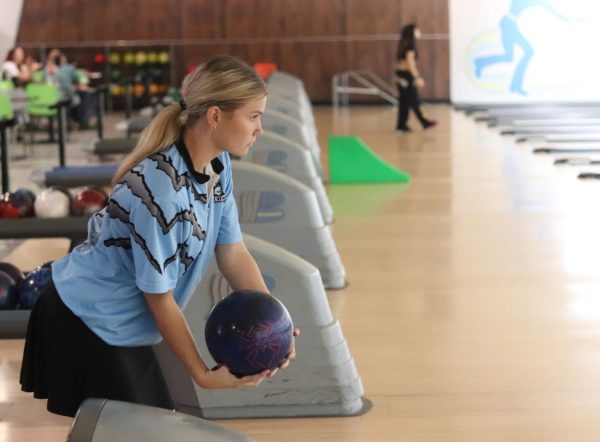Some things never get old
photo by Bethany Barker
Many high schoolers watch various kids’ shows in their free time.
The fuzzy, carefree feeling of running home from school to catch the 3:00 p.m. special of their favorite Nickelodeon cartoon or Disney Channel sitcom, is something all teenagers can remember. Growing up in the early 2000s meant this generation was raised during a renaissance of children’s media, from Pixar’s widely adored animated films, to all the shows from the ‘Cartoon Network-Nickelodeon-Disney’ trifecta, and even to classic novels like Harry Potter or Percy Jackson.
As this generation has gotten older, however, little respect has remained for the enjoyment of children’s entertainment. But although a stigma has developed around the idea of enjoying anything intended for younger audiences, some people still find comfort in kids’ media, including senior Jayleen Moya.
“It reminds me of a time that I didn’t have to worry about a million homework assignments and maintaining a good GPA,” Moya said.
Moya is a self-proclaimed fan of several popular children’s shows, such as Adventure Time, My Little Pony and She-Ra and the Princesses of Power. Among others, she finds that these types of shows not only provide a break from the real world, but also a sense of nostalgia.
“It’s very nice watching a show where the conflicts aren’t too serious, and you know everything will be solved in around 20 minutes,” senior Jane Doe* said. “It’s also fun to watch shows that I watched when I was a kid and remember what life was like back then.”
Whether it is over the homework assignment due tomorrow or the pandemic raging across the globe, teenagers have a lot to be stressed about in the 21st century.
This very reason has also driven many away from typical ‘adult’ media that often feature sexual or violent themes. While it may be important to discuss such topics, often the handling of them comes across as excessive, by trying to be mature for the sake of being mature.
“I can name a bunch of TV-14 and TV-MA shows that absolutely suck. Not everything that is made for you is worth watching,” freshman Josephine Santana said. “Of course it’s great to tell a story about the real world in gritty detail, but you can’t always fill yourself up with the dark stuff.”
What fans of kids’ media have found is that it is just as capable of delivering mature messages to its audience, and fans would argue it often does a better job than most adult cinema or novels. These properties have gradually started to tackle a wider array of subjects, which in the past may have been considered too inappropriate for children.
“I think Steven Universe is definitely one of those shows that bring a deeper meaning to their episodes,” junior Lizabelle Soto said. “Whether it’s about love, loss or identity, the show is able to communicate to viewers of all ages.”
Those who have developed an appreciation for kids’ media seem to prefer its portrayal of such themes because it can also be subtle with them. The writers of these shows and movies aim to create a thesis that children can grasp onto just as easily as older audiences.
“In My Little Pony, almost every episode is a message on how to be a better person and a better friend,” Doe said. “Though it is simplified, it makes you think about your impact on other people.”
The trend perhaps gained more attention through Pixar’s fame, following the studio’s track record of poignant animated films that both adults and children can empathize with. In tandem with classic hits like Up and Finding Nemo, series such as Avatar: The Last Airbender and Percy Jackson all illustrate stories centered around heavy topics that can be enjoyed by almost anyone.
And yet a controversy still arises from other franchises that are less popular, and some have gotten negative reputations from their ‘cringy’ fanbases. Steven Universe and My Little Pony, namely, face a lot of criticism online for their enthusiasm for something catered towards a younger audience. High schoolers that just want to enjoy a fun television show try not to let the antagonism devalue their experiences, nor the complexity that these series can demonstrate.
The stigma has lessened over time: it is not terribly difficult to find someone who is a proud Disney or Avatar: The Last Airbender fan. But in regard to those ‘cringy’ shows, it can be difficult for fans to be open about their interest in them. Doe*, who requested to remain anonymous for this very reason, feels “embarrassed” to tell others that she likes kids’ shows in fear of judgement from her peers. Subsequently, she has only told a small handful of close friends.
“People tend to be very judgemental about others’ interests when it really doesn’t affect them in any way,” Doe said. “I think that as long as what someone is doing isn’t harming others, there is no reason to look down upon them.”
Even with the threat of bullying and scrutinizing looks, teenagers deeply care for these shows, books and movies. It may be the status quo to call someone lame for enjoying something originally intended for children, but that does not change the fact that My Little Pony has accumulated millions of fans, or that Pixar is among the modern kingpins of cinema.
“Sometimes even older teens and adults need the sugarcoated reality with laugh tracks and cute characters,” Santana said. “And let’s be honest, [some shows] I’ve seen that are generally named kids’ shows are really freaking good. There’s a lot of love put into them.”
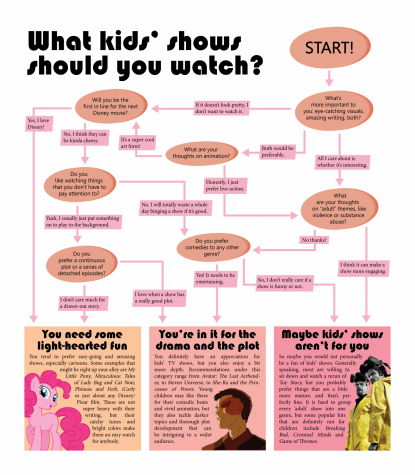
photo by Lukas Goodwin
Your donation will support the student journalists of Hagerty High School. We are an ad-free publication, and your contribution helps us publish six issues of the BluePrint and cover our annual website hosting costs. Thank you so much!


